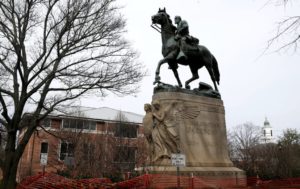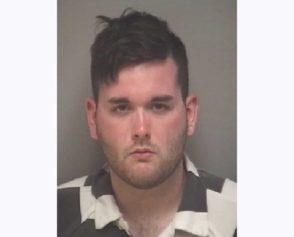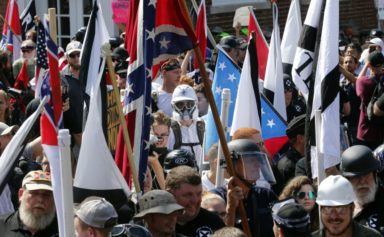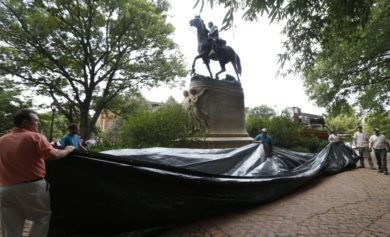
The statue of Robert E. Lee is seen uncovered in Emancipation Park in Charlottesville, Va(Zack Wajsgras/The Daily Progress via AP)
RICHMOND, Va. (AP) — The Republican-controlled Virginia General Assembly has defeated every bill the city of Charlottesville advocated for after a white nationalist rally last summer that shocked the nation.
Measures dealing with Confederate monuments, independent militias and gun restrictions — either inspired by the violence that unfolded or intended to prevent it from happening again — have been quickly squashed before reaching the full floor of either chamber. They have mostly died along party-line votes.
Some Democratic lawmakers contend their Republican colleagues put party politics ahead of public safety. But Republicans largely criticized the bills as bad policy and argued they wouldn’t have prevented the car attack that left 32-year-old Heather Heyer dead.
“I recognize the enormous political pressure on those representing Charlottesville to file legislation in response to the terrible conflict and protests in Charlottesville,” Sen. Mark Obenshain, a Republican committee chairman, wrote in an email. “We also have to recognize that the tragic consequences would not have been prevented by any of the bills that have been filed.”
Sen. Creigh Deeds and Del. David Toscano, whose districts include Charlottesville, sponsored many of the bills prompted by the Aug. 12 rally, which was organized in part to protest the city’s decision to remove a statue of Confederate Gen. Robert E. Lee.
Hundreds of white nationalists, neo-Nazis and other far-right extremists — some dressed as if they were headed to battle — converged downtown that morning for the largest gathering of its kind in at least a decade. Counter-protesters gathered too, and before the rally could begin, violence broke out.
People screamed at one another, unleashed chemical sprays, threw punches and beat each other with weapons. Authorities forced the gathering to disband, and attendees scattered.
Several hours later, as hundreds of counter-protesters were marching through a downtown street, a car slammed into the crowd, killing Heyer and injuring dozens more. A state police helicopter involved in monitoring the violence later crashed, killing two troopers.
Two independent reviews of the rally response — one conducted by a former U.S. attorney and one by the International Association of Chiefs of Police — found serious law enforcement missteps.
One of those reviews and a task force of mostly law enforcement personnel convened by the governor recommended that Virginia law be amended to let local governments impose restrictions on firearms at similar events in the future. Although no one was shot, officials said the fact that attendees were so heavily armed, some with assault-style rifles, hampered the law enforcement response.
Two of Deeds’ bills dealt with gun restrictions: One would have added Charlottesville and adjacent Albemarle County to the list of other Virginia localities allowed to prohibit firearms in public spaces; the other would let localities regulate guns in public buildings, which the city said would improve safety at its often-raucous City Council meetings.
“It is not the city’s intent to ban firearms altogether, but given the events of the past year, we and our police department truly believe that these tools would give us a much better ability to manage events and protect the public safety,” Lisa Robertson, an attorney for the city, told the committee considering both measures. She was accompanied by police officers from both the Charlottesville and Albemarle County departments, who also urged lawmakers to pass the bills.
The committee killed them in two nearly party-line votes.
Other defeated measures would have given cities the ability to remove memorials for war veterans, something a state law being challenged in court currently prohibits.
Two measures written by Democratic Attorney General Mark Herring — one dealing with restricting militias and another intended to help combat white supremacist groups and other extremists — also went nowhere.
Another of Deeds’ bill would have allowed localities to regulate or prohibit people from wearing clothes or weaponry that gave the impression they were active military members. The measure was intended to rein in the type of independent militias that showed up at the rally and prompted confusion about whether they were law enforcement officials.
Deeds urged a different committee to pass that measure, pointing out that the General Assembly had already seen fit to pass a law prohibiting people from imitating police or wearing masks.
But most Republican committee members and one Democratic colleague were not swayed, and the panel killed it.
“I’m very concerned because I don’t think we’ve seen the last of these types of demonstrations,” Virginia’s Secretary of Public and Homeland Security Safety Brian Moran said. “I wish the legislature had seen fit to equip our localities with the ability to ensure the public safety of their citizens.”


